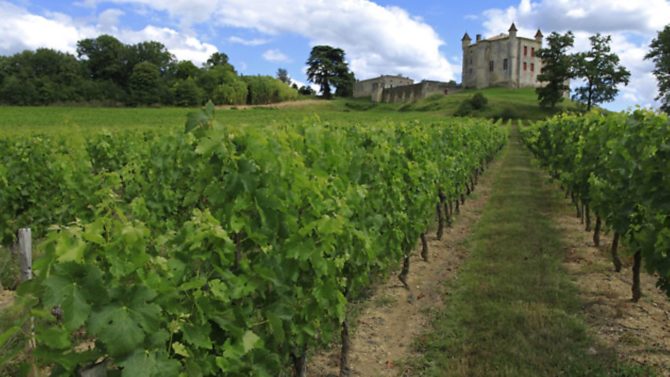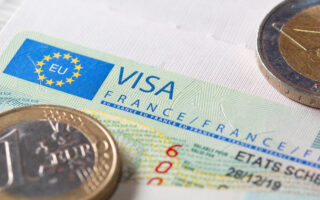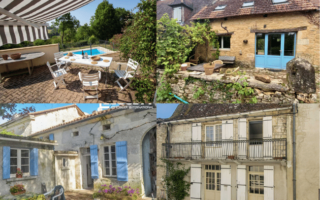The process and legalities of buying a vineyard property in France


Buying a vineyard in France is more complex than a standard property purchase but the right preparation will ensure it all goes smoothly, as Loïc Raboteau explains
Whether wine professionals who want to expand, people who want to start a new business, those looking for an investment and lifestyle opportunity or those who simply love wine, there are a variety of reasons behind the purchase of a vineyard.
With different types of vineyard all around the country covering more than 800,000 hectares, France certainly has plenty to offer, and where you invest will depend on your project and budget. The geographical situation, the soil quality, the appellation to identify where the grapes were grown and the state of the property are important points to consider.
It is not advisable to go it alone on this type of purchase, and to ensure a smooth and successful transaction it would be wise to consult a wine estate specialist, an auditor/accountant, legal advisors and a notaire.
Due to its complexity, the buying process of a vineyard also takes much longer than a standard property purchase. You are unlikely to find large appellations advertised on the internet, and this is where independent wine property agents come in. Agents specialising in vineyard properties can approach those matching your criteria that may not be on the market, and can provide a comparison with recent transactions that took place in the area.
In most cases your agent will ask you to sign a non-disclosure agreement (NDA). These are very important in the context of wine transactions as the identity of the parties, the information provided by the vendor and the conditions of the transactions must remain confidential.
When your agent has found you a vineyard that matches your criteria, they will ask you to sign a letter of intent or a non-binding offer, which will lay down the main conditions of the transaction, including the price, scope of the acquisition, period of exclusivity to allow the parties to negotiate and, most importantly, the period to carry out your own due diligence.
Wine lovers tend to forget that they are purchasing a business as well as a house to live in, and therefore it is vital to carry out due diligence on the business and on the property prior to signing a binding contract. The outcome will enable you to collect all the information that the vendor has to disclose, and to negotiate the purchase price and purchasing conditions you would like to insert in the preliminary contract.
The due diligence checklist will depend on the size and type of vineyard, but can include:
An audit and valuation of the property to be carried out by experts: an inspection of the vineyard’s quality by an oenologist, the location and size of each plot, density of planting, company assets and equipment, evaluation of the stock, compliance regulations regarding the appellation, environmental inspection of the cellars carried out by a laboratory, and surveys of the building (structural survey, asbestos, lead poisoning, termites).
The legal due diligence: conditions of the transaction (administrative authorisations, preferential rights of third parties such as SAFER, encumbrances affecting the property, the permitted use of the property), corporate organisation of ownership of the company, intellectual property rights, trademarks, leases and insurance.
Financial and accounting due diligence: valuation of wine inventory, business plan, and profit and loss accounts. Successful due diligence will give the purchaser a good understanding of the cost of the transaction and its potential risks, and will enable them to negotiate security clauses in the preliminary purchase and sale agreement.
When the purchaser has been satisfied with the outcome of the due diligence, he makes a binding offer to the vendor confirming his intention to purchase and his conditions. If the vendor agrees to the offer, the two parties sign a preliminary purchase and sale agreement, drafted by the vendor’s lawyers or the notaire.
The agreement should include a detailed description of the purchase (assets, equipment, shares), the price and its methods of calculation, the payment terms, the security clauses stipulated in the interests of both parties (such as obtaining administrative authorisation, obtaining a mortgage, ensuring a lack of encumbrances on the property), special conditions (departure of the current manager, for example), management of the property within the transitional period, the vacation of the property, the date of completion of the transaction, payment of a deposit (in general 5%) and penalty clauses.
The right purchase structure will also be an important element to consider, especially if it is an asset purchase for the buyer and their family.
After fulfilment of all the searches and conditions, the parties will sign the acte de vente (deed of sale) at the notaire’s office to conclude the transaction. In some cases, the sale of a vineyard will consist of the sale of a business and therefore the sale of company shares, so a share purchase agreement will be signed by both parties.
Ultimately, the key to a successful vineyard purchase is preparation, patience and the right team of experts to advise you.
Loïc Raboteau is managing director of Francophile Legal ConsultingTel: 020 3356 9742
Share to: Facebook Twitter LinkedIn Email


